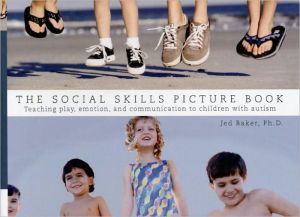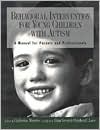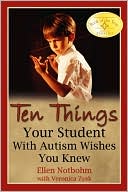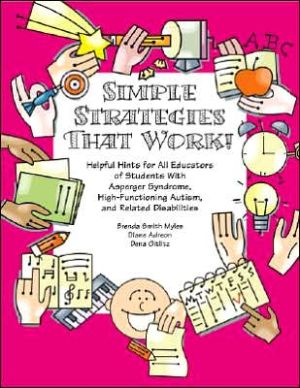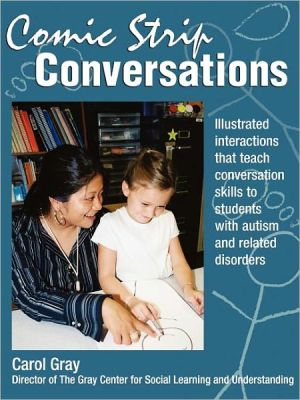Social Skills Picture Book: Teaching Play, Emotion, and Communication to Children with Autism
Winner of an iParenting Media Award, this book uses photographs of students engaging in a variety of real-life social situations. The realistic format plays to the visual strengths of children with ASD to teach appropriate social behaviors. Color photographs illustrate the "right way" and "wrong way" to approach each situation and the positive/negative consequences of each. A facilitator (parent, teacher, etc.) is initially needed to explain each situation, and ask questions such as "What is...
Search in google:
A dynamic teaching tool for children with autism or Asperger's Syndrome, "The Social Skills Picture Book" offers pictures of the right and wrong ways to handle nearly 30 social skills, such as conversation, play, emotion, management, and empathy.
Part One\ The Nature of Autism A brief look at Autism The Importance of Using Visual Aids to Teach Children with Autism Teaching Social Skills Discrete Trial Incidental Teaching Cognitive Picture Rehearsal What are Social Stories?\ Structured Learning About Social Skill Picture Stories What are Social Skills Picture Stories?\ Who Should Use Social Skills Picture Stories?\ How to Use This Book Initial Instruction Should You Teach the “Wrong Way” to Enact a Skill?\ Role-playing the Skills Reviewing the Skill/Providing Corrective Feedback Generalization of Skills Making Your Own Social Skills Picture Stories Things to Consider Sample Steps for Other Skills References\ Part Two\ Communication Related Skills Don’t be a Space Invader Listening Position Interrupting I (help opening a jar)\ Interrupting II (help with a zipper)\ Interrupting III (asking peers for a toy)\ Greetings Listening During a Conversation Starting and Maintaining a Conversation (about the present)\ Starting and Maintaining a Conversation (about the past)\ Ending a conversation Introducing yourself Talking Briefly Play-Related Skills Asking to Play Joining in Play Sharing Compromising Turn Taking in Play Playing a Game Dealing with Losing Emotion-Related Skills Keeping Calm Showing Understanding for Others’ Feelings Accepting No for an Answer Dealing with Mistakes Trying Something New (fear of a new situation)\ Dealing with Teasing Trying when it’s Hard (dealing with hard or frustrating work)\
